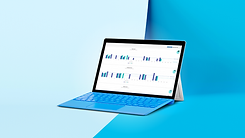

EmoRisk
The first and only system in history capable of locating, detecting, and monitoring psychosocial risks in real-time.
The system
EmoRisk
Revolutionizing Workplace Well-being through Advanced Emotion Detection
Harnessing cutting-edge technology, EmoRisk offers invaluable insights into employees' daily emotions, enhancing workplace well-being, mental health, and productivity.

Experience the power of EmoRisk, the leading-edge system designed to detect and manage psychosocial risks in employees. With EmoRisk, organizations gain the tools to effectively control and mitigate potential risks, ensuring a healthier and more productive work environment.
01
Comprehensive Risk Detection
02
Continuous Monitoring and Immediate Intervention
03
Enhanced Productive Capacity
04
Attendance Time Control
EmoRisk stands as the first and only technology capable of detecting a wide range of psychosocial risks, including emotional states, stress levels, mental load, burnout, depression, harassment, and employee attrition tendencies. Gain deep insights into your workforce's well-being and proactively address potential issues before they escalate.
EmoRisk provides real-time monitoring and immediate intervention indicators, allowing organizations to respond swiftly to emerging risks. By staying ahead of potential challenges, you can intervene effectively, promoting employee well-being and preserving productivity.
With EmoRisk, you can focus on optimizing the productive capacity and performance of your human capital. The system's continuous monitoring enables you to identify areas for improvement, implement targeted interventions, and enhance employee engagement and satisfaction.
EmoRisk goes beyond risk detection by incorporating attendance time tracking. Streamline attendance management and ensure compliance with schedules, enhancing workforce efficiency and accountability.
Discover the power of EmoRisk, a comprehensive system that revolutionizes the way organizations manage psychosocial risks. EmoRisk consists of two seamlessly integrated applications, each offering unique benefits for effective risk management.
Administrative Platform
With our intuitive Administrative Application, your dedicated psychosocial risk management team gains full control and oversight of the EmoRisk system.

EmoRisk Application
Our EmoRisk Application empowers employees to take charge of their emotional well-being daily.

Some Characteristics:
Daily Emotional Registration: Through a simple and user-friendly interface, employees can register their voice for just 6 seconds each day, providing valuable insights into their current emotional state.
Time registration: Verification and registration of entry and exit times.
License Assignment: Assign EmoRisk licenses to individual employees, enabling them to access the EmoRisk application and contribute to their own well-being.
Alert Monitoring: Monitor real-time alerts and notifications, providing immediate insights into employees' emotional states and enabling swift intervention when needed.
EmoRisk Application Areas

EmoRisk is designed to benefit a wide range of professionals across industries.

ARMED FORCES
The EmoRisk system can contribute significantly to the well-being & mental health of armed forces personnel.

By detecting emotional states and providing support, EmoRisk can help mitigate burnout, enhance resilience, and promote the well-being of those dedicated to caring for others.

EmoRisk provides valuable insights into students' emotional states, enabling educational institutions to identify and address potential psychological challenges, promoting mental well-being, and supporting academic success.

EmoRisk can help athletes and sports professionals monitor their emotional well-being, detect signs of stress or burnout, and optimize their performance by managing psychosocial risks effectively.
Why is the detection of psychosocial risks important?
Work stress, violence, and any other psychosocial disturbance in the workplace are conflicts that concern the authorities and become the responsibility of the employer.
The use of technologies that detect psychosocial risks in companies is crucial in promoting a healthy and productive work environment. Here are some statistical data from the World Health Organization (WHO) and the International Labour Organization (ILO) that highlight the importance of such technologies:
1. Impact on Disability and Productivity:
-
According to the WHO, depression is projected to be the leading cause of disability worldwide by 2020.
-
Mental health conditions, including stress-related disorders, contribute significantly to absenteeism, decreased productivity, and increased healthcare costs for companies.
-
Moreover, there is a growing prevalence of addiction to alcohol, tobacco, and syndromes commonly associated with work environments, such as burnout (burnt worker syndrome) and anxiety. It is important to note that work stress can even accelerate the onset of conditions like hypertension or diabetes.


2. Prevalence of Work-Related Stress:
-
The ILO estimates that work-related stress affects over 1 billion workers globally, leading to increased absenteeism and reduced performance.
-
In Europe alone, stress-related work absences account for 50-60% of all lost working days.
-
The ILO Occupational Safety and Health Convention (No. 155) and Recommendation (No. 164) provide a legal framework to protect the health and safety of workers. However, the WHO Mental Health Atlas found that only 35 percent of countries reported having national programs for work-related mental health promotion and prevention.
3. Economic Consequences:
-
The ILO estimates that the global cost of work-related stress and mental health conditions amounts to around 4% of global GDP, which equates to trillions of dollars annually.
-
Lost productivity, medical expenses, and other associated costs make investing in psychosocial risk detection technologies a financially sound decision for companies.


4. Proactive Risk Management:
-
Early detection of psychosocial risks allows companies to take proactive measures, such as implementing employee support programs, training initiatives, and stress management interventions.
-
By identifying and addressing psychosocial risks promptly, companies can reduce the likelihood of workplace conflicts, burnout, and employee turnover.
5. Legal and Regulatory Frameworks:
Regulations regarding psychosocial risks in the workplace have been established in various regions globally.
Psychosocial risk management has gained increasing attention, with several nations enacting legal and regulatory frameworks to address these issues. While the specific regulations may vary across countries, here are some notable examples:
-
In Europe, the European Agency for Safety and Health at Work has guidelines to address work-related stress.
The European Agency for Safety and Health at Work (EU-OSHA) provides information on managing work-related stress and psychosocial risks. The Framework Directive 89/391/EEC sets the general principles for protecting workers' health and safety, which includes addressing psychosocial risks.
-
United Kingdom: Health and Safety at Work Act (1974): The Health and Safety at Work Act places a general duty on employers to ensure the health, safety, and welfare of their employees. It includes the obligation to identify and manage psychosocial risks in the workplace.
-
Germany:
Occupational Health and Safety Act (Arbeitsschutzgesetz): This Act places a duty on employers to assess and manage psychosocial risks in the workplace. It requires employers to identify stress factors, develop preventive measures, and provide support to employees.
-
France:
Labour Code (Code du travail): The French Labour Code addresses psychosocial risks through provisions related to the prevention of occupational hazards. It requires employers to evaluate and address psychosocial risks, develop preventive measures, and provide information and training to employees.
-
Sweden: Work Environment Act (Arbetsmiljölagen): The Swedish Work Environment Act requires employers to conduct risk assessments, including psychosocial risks, and systematically address and prevent psychosocial risks, such as stress and workplace bullying. It emphasizes preventive measures.
-
Switzerland
In Switzerland, psychosocial risks in the workplace are addressed within the framework of occupational health and safety legislation.
The Swiss Federal Act on Accident Insurance (LAA) and the Ordinance on Accident Insurance (UVV) provide guidelines for preventing psychosocial risks.
-
Norway:
In Norway, psychosocial risks in the workplace are regulated by the Working Environment Act (Arbeidsmiljøloven).
The Act requires employers to identify, assess, and implement measures to prevent psychosocial risks, including stress and harassment.
-
Finland:
Finland has legislation in place to address psychosocial risks in the workplace, which is primarily governed by the Occupational Safety and Health Act (Työturvallisuuslaki).
Employers in Finland are obligated to identify and mitigate psychosocial risks, such as stress and workplace bullying.
-
Australia:
Work Health and Safety Act (2011): The Work Health and Safety Act requires employers to provide a safe and healthy work environment, which includes addressing psychosocial risks. It emphasizes the duty of care and the importance of risk assessment and control measures.
Safe Work Australia offers resources on work-related stress, bullying, and harassment, including guidelines for preventing and managing psychosocial risks.
Some states and territories, like New South Wales and Victoria, have additional legislation regarding workplace bullying and psychosocial hazards.
-
Japan: Industrial Safety and Health Act: The Industrial Safety and Health Act in Japan requires employers to take measures to prevent mental health
-
Mexican Official Standard NOM-035-STPS-2018:This official standard, issued by the Secretariat of Labor and Social Welfare (Secretaría del Trabajo y Previsión Social - STPS), addresses the identification, analysis, prevention, and control of psychosocial risks in the workplace. It aims to prevent work-related stress and promote a favorable work environment. Employers are required to conduct risk assessments, implement prevention measures, and establish mechanisms for employees to report psychosocial risks.
-
Chile introduced Law No. 21,015 in 2017, which focuses on preventing harassment, promoting a respectful work environment, and effectively addressing psychosocial risks. This law requires companies to implement prevention policies, conduct risk assessments, and establish procedures for reporting and investigating cases of workplace harassment.
-
In Argentina, Resolution No. 91/2018 issued by the Superintendence of Occupational Risks (Superintendencia de Riesgos del Trabajo - SRT) provides guidelines for the assessment and prevention of psychosocial risks in the workplace. It emphasizes the importance of identifying and managing factors such as work stress, violence, and organizational climate to ensure the well-being of employees.
-
Colombia has made strides in addressing psychosocial risks through Resolution No. 2646/2008, which establishes guidelines for the identification, assessment, and intervention of occupational hazards, including psychosocial factors. Additionally, Decree No. 1072/2015 provides specific regulations on psychosocial risk management, requiring employers to conduct risk assessments and implement prevention programs.
-
Ecuador:
In Ecuador, psychosocial risks in the workplace are regulated by the Organic Law on Labor Justice and Labor Recognition (Código Orgánico de la Función Judicial). The law requires employers to prevent psychosocial risks and provides guidelines for addressing workplace stress and harassment.
-
Uruguay has implemented Law No. 19,196, which focuses on the prevention and eradication of workplace harassment. This law defines workplace harassment, establishes prevention measures, and outlines procedures for reporting and addressing complaints related to psychosocial risks.
-
Although Brazil does not have specific legislation dedicated solely to psychosocial risks, the Brazilian Regulatory Standard NR-7 addresses the need for occupational health programs. It emphasizes the importance of risk assessment, prevention, and promotion of a healthy work environment, which indirectly encompasses psychosocial risks.
It is worth noting that these examples are not exhaustive, and other Worldwide countries may have their own regulations and guidelines addressing psychosocial risks. Employers should stay updated on the specific requirements and obligations in their respective countries to ensure compliance and foster a safe and healthy work environment.
Compliance with these regulations not only ensures legal adherence but also promotes a positive company image and fosters employee satisfaction and loyalty.

Regardless of the domain or industry, EmoRisk empowers organizations and individuals to proactively manage psychosocial risks, safeguard well-being, and drive success. Explore the limitless possibilities with EmoRisk and unlock the potential for enhanced emotional well-being and performance.
Contact us now to learn more about how EmoRisk can revolutionize psychosocial risk management in your specific area of interest.
